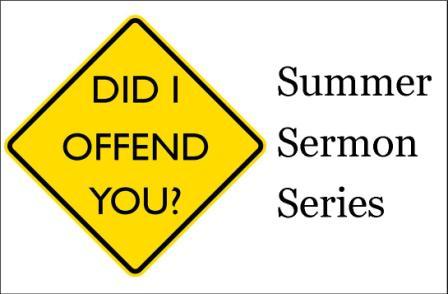Don’t Break the Preaching Covenant
Don’t Break the Preaching Covenant
 In the last post I introduced the idea of the preaching contract, the things that the congregation expects of its preachers. We saw that these expectations are usually unwritten, but are very real, and are essential for the preacher to understand if he doesn’t want to erect barriers to his message. Today we are going to look at the exhortation: Don’t break the preaching covenant with your congregation.
In the last post I introduced the idea of the preaching contract, the things that the congregation expects of its preachers. We saw that these expectations are usually unwritten, but are very real, and are essential for the preacher to understand if he doesn’t want to erect barriers to his message. Today we are going to look at the exhortation: Don’t break the preaching covenant with your congregation.
Don’t Fight With The Organist
There are certain people within the church who are respected and valued. One of them is the organist . One subtle part of the preaching covenant is that you don’t fight with these important people.
That reminds me of a story.
A good friend of mine had just come to a new congregation. The church that called him to ministry had been on a downward trajectory for many years, and they called this man, my friend, to bring renewal to the congregation.  Unfortunately, as my friend got to know the church, he realized that if there was going to be renewal, there would have to be extensive change. One Sunday, as he ended the service, he said, “Today we are thanking John for his many years of faithful service in playing the organ for us. Today is his last Sunday.”
Unfortunately, as my friend got to know the church, he realized that if there was going to be renewal, there would have to be extensive change. One Sunday, as he ended the service, he said, “Today we are thanking John for his many years of faithful service in playing the organ for us. Today is his last Sunday.”
Unfortunately, he didn’t asked the permission of the elders or the worship development team to do this, and he hadn’t told John that this was what he was planning to do.
The Rest of This Story
Needless to say, his action created quite a stir for the congregation. He had violated the agreement that you don’t create conflict with significant people. That is breaking the preaching covenant with the congregation.
On the positive side, the church made many changes under his leadership, and began to grow. One of the most positive of changes was the introduction of a more contemporary form of worship, but it took a long time for many to get over the organist controversy.
The decision he made was right. The way he did it was wrong, because it broke a covenant of sorts.
In your church, it may not be the organist. It may be somebody else in the church who is a leader and is respected. The congregation sees this principle of not fighting with the organist as part of the agreement they made with you. This is true even if the agreement was never verbalized. Don’t break the preaching covenant or you will regret it. People will be less likely to listen to your preaching.
Don’t Change The Name of the Church
 Only make major changes with a thorough process of keeping people informed. Don’t break the preaching covenant is something I learned when I proposed that we change the name of the church. I’m really good at creating positive processes for decisions, and thought I had done a good job in preparing people for this one. There were good reasons to change our name (misidentification with two other congregations in our town, our move to a new section in town, and our desire to have a new start).
Only make major changes with a thorough process of keeping people informed. Don’t break the preaching covenant is something I learned when I proposed that we change the name of the church. I’m really good at creating positive processes for decisions, and thought I had done a good job in preparing people for this one. There were good reasons to change our name (misidentification with two other congregations in our town, our move to a new section in town, and our desire to have a new start).
We had a good team of people. They researched other names, and took suggestions from the congregation. After all their work, they presented five possibilities that we were going to choose between. The meeting had not yet begun when it came off the rails. A woman got up and grabbed the microphone and began to bewail all the changes we had been going through. Her initiative got the ball rolling for other negative statements. Before long, we had to stop the meeting, promising a rescheduling when we had looked at all the issues.
Eventually, we did make a positive name change, but I broke the preaching covenant by not bringing the whole congregation along in the process.
In the next post we’ll look at some of the other subtle agreements that are part of our relationship with the congregation where we preach. With this link you will find a blog that reflects on why people leave churches. It gives us a hint about some subtle contracts. However, there is no survey that I know of at this point about why pastors leave, or are forced out of their churches.



